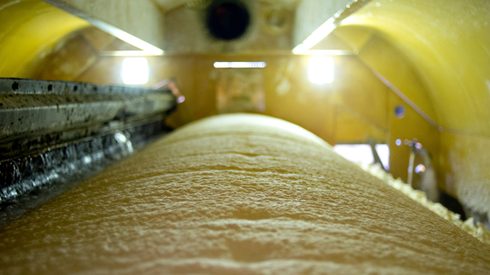Sellers of bleached eucalyptus kraft (BEK) pulp had another successful month in July, pushing through their $30/tonne price increase in full, once again with little or no negotiating, market sources said. The BEK market remained tight last month, buoyed by continued good demand as well as problems on the supply side, they added.
The story was somewhat different on the softwood side of the market. While there was some upward movement in northern bleached softwood kraft (NBSK) pulp prices, it was not at the uniform level registered on the hardwood side, and negotiations were generally more difficult, according to market players. As a result, the spread in NBSK prices widened last month, with developments running the gamut from relative stability to increases of $10-30/tonne or more. While demand remained solid, as on the hardwood side, supply-side issues also offered support to pricing.
BEK prices moved up with ease
BEK sellers implemented their $30/tonne increase for July with ease by all accounts. The latest increase brought pricing for the month to $1,380/tonne, resulting in an increase of some $240/tonne for the short-fiber benchmark since January.
A seller said that while August is traditionally a month of maintenance and holiday downtime for paper producers and that many are taking at least some downtime this month, everyone was taking their full volumes to try to “build a bit of stock for safety.”
A couple of buyers were complaining [about the increase] but they were not negotiating. They still wanted their full volumes and took their full orders.
A couple of contacts mentioned low port stocks, especially in Italy. “Italian [stock] levels were almost critical,” a contact said, noting that they were at a low point not seen for some 10 years. The main problem, he added, was more the late arrival of vessels as opposed to a lack of pulp, with significant congestion in ports and ships having to wait to unload.
Other market players said that while there had been some improvement in the shipping situation at sea, bottlenecks with inland transport from ports to mills via rail and truck continued. “Shipping [by sea] is relatively well under control; things are better and improving. Inland transport is the issue now – rail problems and very expensive truck transport,” a buyer explained.
Supply disruptions were another key topic on the mind of market players. Ence’s 515,000 tonne/yr BEK mill in Pontevedra had to suspend operations in late July due to drought conditions. The mill cannot be restarted until the water flow in the Lérez River, where the mill sources its water, returns to legally mandated levels.
While the suspended production at Ence is creating pressure on the market, several contacts suggested that the overall supply situation had perhaps eased somewhat. “The hardwood market is tighter than softwood, but the supply chain situation is improving. No one is really missing pulp at the moment, so things are a bit more relaxed despite the supply disruptions,” a contact said.
Perhaps the biggest change moving into August is that there are no price increase announcements on the table for BEK. “This is something new and it’s good news. We have increased our [paper] prices dramatically since last year; we have managed to do that, but that seems to be over – there is much more resistance and we are at the point of really killing demand now,” a pulp buyer said.
Several contacts also reported rising pressure on pricing in the peripheral spot markets such as the Middle East. One source quoted levels of around $1,000/tonne at the end of July, while another cited levels of $980/tonne, with pressure for drops of around $20/tonne.
Uneven NBSK price increases across the market
The situation on the softwood side of the market in July was somewhat messier, with contacts reporting a range of developments from stable pricing to varying levels of increases. In addition to stability at around $1,480/tonne, some sources cited increases of $10-20/tonne and in some cases even more. The result left pricing for the month in a range of $1,480-1,520/tonne, with several contacts saying that the bulk of pricing landed at around $1,490-1,500/tonne.
“Buyers and sellers are in the challenging position of having different starting points [for price increases] and different levels of agreement,” said one seller. “Some in the market were asking for +$40/tonne but realized just $20/tonne of that in July,” he added, noting that that was the level at which he had closed all of his business for the month.
“There is more softwood availability than for hardwood, but the market is still strong, and we had some issues securing all the pulp we needed,” said a buyer who reported closing July business at $1,520/tonne.
The supply side of the softwood market has also been affected by a significant disruption at Mercer’s 660,000 tonne/yr Stendal NBSK mill. The mill was forced to stop on July 1 after its woodyard was hit by a fire. The plant managed to restart during the last week of July after a work-around solution was put in place but is currently operating at just 50-60% capacity, with the goal of reaching 80% by the end of this quarter.
As with hardwood, there have been no new price increases announced for August, but with the patchy implementation of the most recent hikes last month, several market sources said that some in the market could see further increases this month. “Some got price increases in July, but others will see increases implemented in August,” a seller suggested.
Others, however, were less sure. “Some producers did get an increase in July, but there is a lot of negativity towards the increase effort. Some buyers are prepared to cut volumes and there is definitely more softwood in the market and available now,” a contact said.
Want to get ahead of the the game? Take a look at the outlook for the global wood pulp market in 2023.




